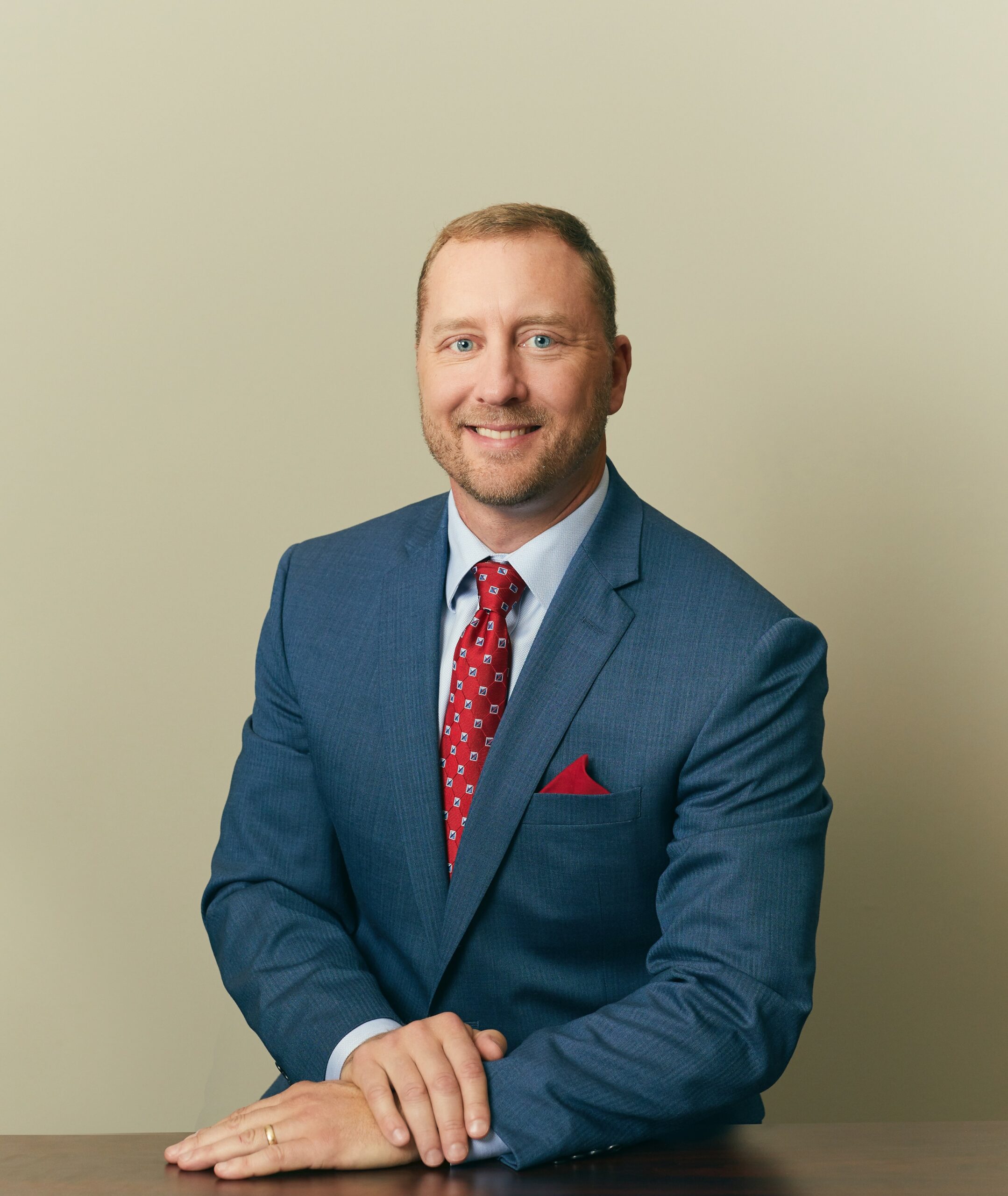Helping to guide the evolution of a community bank that began doing business from a converted mobile home in Conway, Arkansas, into a financial institution managing more than $17 billion of wealth across the southeast United States, David Druey knows first-hand how gaining financial insight and fostering community relationships can pave the way for prosperity.
After a stint as a scuba diving instructor once he earned his bachelor’s degree in business administration from the University of Mississippi in 1994, an interest in the financial field beckoned. Wanting a more stable career path and not exactly sure which industry to explore, he found himself at Northwest Financial Corp. in Jackson, Mississippi, for a very simple reason.
“They hired me,” he says.
After his tenure in Mississippi, Druey began working as a loan officer in 1998 at Centennial Bank, where he watched the bricks being laid on the bank’s first branch and quickly climbed the corporate ladder to become its regional president based in Pompano Beach.
Experiencing the transformation of a small community bank barely capable of lending $5 million, to an institution managing more than $17 billion in wealth, didn’t happen overnight—and neither does developing the relationships that made it possible.
“Sometimes, you want to pinch yourself,” he says. “We were just going to be a small community bank in Conway, and we couldn’t even fathom or imagine having that in 1998.”
Working for a community bank that was trying to establish itself while simultaneously growing in an unfamiliar industry didn’t afford Druey any room to make mistakes. During the initial stages of his banking career in Arkansas, he encountered what he calls his “career loan.”
A local business was looking to construct a new facility, and Druey knew the owner and industry well. The loan was close to the bank’s legal lending limit at the time, so any slip-up could cost the bank its lending prowess. While the loan was risky if the borrower defaulted, Druey had a rapport with the executive, who assured him the construction loan could be repaid regardless of how the business performed.
“It’s kind of like a black-swan event like COVID,” Druey says. “You would never underwrite to COVID, but then COVID happened. We built it and then this particular industry shut down for a period of time and I still remember them calling and saying, ‘Hey, we’re not opening.’ And then they said, ‘But just like you and I have already discussed, it’s OK because we’re going to still be able to make the payments and uphold our obligations.’ That was one of those a-ha moments of how important character is when you’re loaning somebody money.”
Having the backing of one of the most successful community banks in the country allows Druey to enjoy every aspect of his work now. Whether it’s reviewing commercial and residential properties with clients, negotiating loan terms with an entrepreneur trying to open a hotel in Pompano Beach, or sourcing funding for a developer looking to build a 200-apartment complex on Florida’s west coast, Druey revels in the variety of day-to-day responsibilities and the eclectic roster of clients he interacts with.
“The ability to be able to understand and comprehend all those businesses and try to help people figure out ways to do what they want to do is something that always made it fun,” he says. “This is one of the few jobs that you are as knowledgeable about so many different businesses and specialties because you help educate each other on what to look for and build that relationship.”
While crafting those relationships over the years, Druey has noticed one area severely lacking in society—financial literacy. “The single most important thing that we are failing to teach our children is how to do adulting. How to balance a checkbook, how to understand how utilities work, how to understand what a payment is, how to understand what your debt-to-income ratio is, how to save, how to learn about time, value, money—we are not teaching those kids how to do those things,” Druey says.
To strengthen financial literacy in the community, Druey and Centennial Bank partnered with GreenPath Financial Wellness, a financial wellness nonprofit organization, and Banzai Inc., an interactive course on real-world finance, to fill the practical educational hole many people in society fall through. The partnership aims to provide resources and financial education to empower those most lacking in financial expertise—home buyers, students and retirees.
“As bankers,” Druey says, “we see the gap, and we’re doing our best to try to fill that gap the best way we can.”














